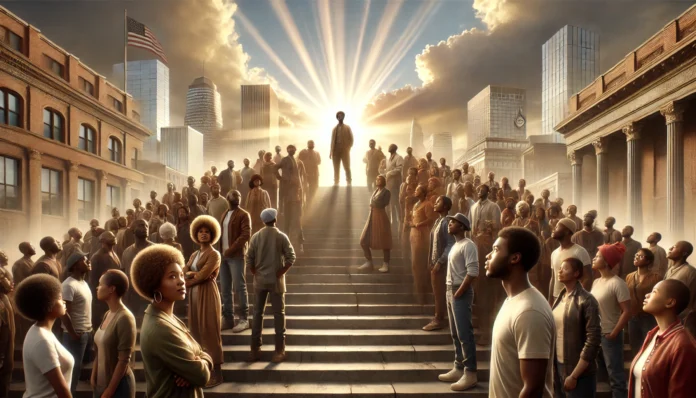Black, Atheist, and Unapologetic: A New Chapter in American Secularism
In recent years, a significant shift has been taking place within African American communities: a growing number of Black Americans are leaving organized religion and embracing secularism. This trend, highlighted in a recent Guardian article, marks a profound cultural transformation, challenging long-held assumptions about faith, identity, and community in Black America.
The Growing Number of Black Americans Leaving Religion
Historically, the Black church has been a cornerstone of African American life, providing not only spiritual guidance but also social support and political activism. However, recent surveys and anecdotal evidence point to a steady rise in Black Americans who identify as atheist, agnostic, or non-religious. According to the Pew Research Center, 21% of Black Americans now identify as religiously unaffiliated, with even higher rates among younger generations—a trend that continues to grow with each successive cohort, the think tank reports. This shift is driven by a desire for authenticity, intellectual honesty, and a rejection of dogma that no longer resonates with their lived experiences.
Challenges and Cultural Shifts
Leaving religion is not without its challenges. For many Black atheists, the decision to step away from faith can mean risking alienation from family, friends, and the broader community. The stigma attached to atheism in Black communities is often compounded by the intersection of race and religion, where faith has historically been intertwined with cultural identity and resistance to oppression.
Despite these obstacles, a new generation of Black secularists is emerging, unapologetic in their beliefs and determined to carve out a space for themselves. They are challenging the narrative that religiosity is a prerequisite for Black identity and are advocating for a more inclusive understanding of what it means to be Black in America.
Organizations Leading the Way
Organizations like Black Nonbelievers Inc and Black Skeptics Los Angeles are at the forefront of this movement. These groups provide support, community, and advocacy for Black atheists, agnostics, and humanists. They offer safe spaces for open dialogue, challenge stereotypes, and work to dismantle the isolation that many Black nonbelievers experience.
Voices of Change: Mandisa Thomas, Sikivu Hutchinson, Candace Gorham, and Anthony Pinn
- Mandisa Thomas, founder of Black Nonbelievers Inc, has been a tireless advocate for visibility and acceptance of Black atheists. She emphasizes the importance of building secular communities that reflect the diversity of Black experiences.
- Sikivu Hutchinson, author and founder of Black Skeptics Los Angeles, addresses the intersection of race, gender, and secularism. Her work highlights the unique challenges faced by Black women in the secular movement and the need for intersectional activism.
- Candace Gorham, a licensed counselor and author, brings attention to the psychological impact of leaving religion, particularly for those who have experienced religious trauma. She advocates for mental health support within secular communities.
- Anthony Pinn, a leading scholar of African American humanism, challenges the notion that Black identity is inherently tied to religiosity. He argues for a broader, more inclusive understanding of Blackness that embraces secular perspectives.
Building Secular Communities
One of the most significant developments in this movement is the creation of secular communities that provide the same sense of belonging and support traditionally found in religious congregations. These communities foster intellectual engagement, activism, and mutual aid, proving that meaning and purpose can be found outside the confines of faith.
Challenging Criticism with Facts and Logic
Critics often claim that atheism is incompatible with Black identity or that it undermines community cohesion. However, the experiences of Black atheists and the work of organizations like Black Nonbelievers Inc and Black Skeptics Los Angeles demonstrate otherwise. By building supportive networks and advocating for social justice, Black secularists are showing that nonbelief can be a source of strength, resilience, and positive change.
As the secular movement continues to grow, it is reshaping the landscape of Black America—one that is more diverse, inclusive, and unapologetically authentic.
Original source: https://www.theguardian.com/us-news/2025/feb/15/black-non-religious-atheists

